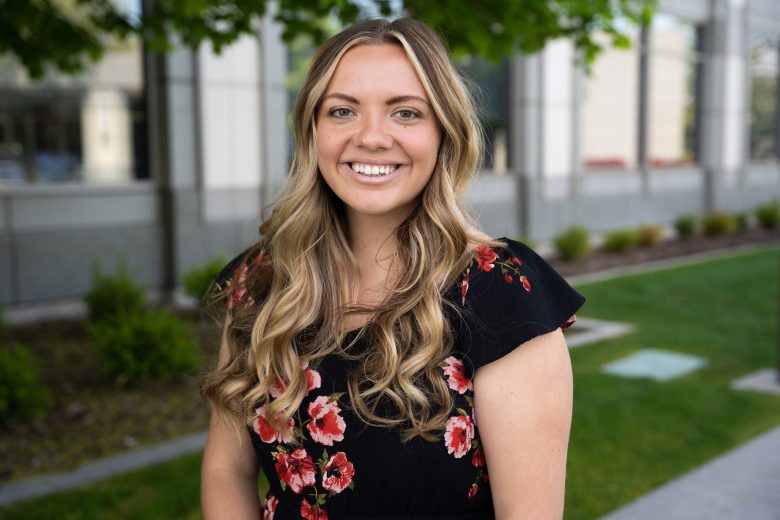Every 73 seconds, an American is sexually assaulted. In fact, nearly half of women and a quarter of men have experienced some form of contact sexual violence in their lifetime (Rape, Abuse & Incest National Network (RAINN)). This April marks the 20th anniversary of Sexual Assault Awareness month, a time dedicated to increasing awareness and supporting survivors of sexual assault.
 Dr. Kenneth Roach, professor in the Master of Science in Clinical Mental Health Counseling (MHC) program at Rocky Mountain University of Health Professionals (RMUoHP), has been a victim advocate at the Rape Recovery Center, trained victim advocates for the Utah Coalition Against Sexual Assault, and now provides expert witness testimony in sexual violence cases. He has helped many survivors of sexual assault throughout his life. He offers four tips that could help friends of survivors to better support victims of sexual assault.
Dr. Kenneth Roach, professor in the Master of Science in Clinical Mental Health Counseling (MHC) program at Rocky Mountain University of Health Professionals (RMUoHP), has been a victim advocate at the Rape Recovery Center, trained victim advocates for the Utah Coalition Against Sexual Assault, and now provides expert witness testimony in sexual violence cases. He has helped many survivors of sexual assault throughout his life. He offers four tips that could help friends of survivors to better support victims of sexual assault.
- Educate Yourself: Even if you have not been approached by a survivor, make sure you are aware of the breadth of sexual assault. Many feel that it is only something that can happen to women. However, anyone, regardless of sex, sexual orientation, gender identity, or age, can be the victim of sexual violence. There are many myths surrounding sexual assault. “Many people believe rapes are perpetrated by strangers, victims always resist, victims are usually injured, and that victims usually report the assault immediately.” However, Roach explained, “Most rapes are perpetrated by someone the victim knows. Some victims fight back; many do not. Most victims do not suffer serious physical injury, and many victims do not report the assault right away. Some never report.” Eliminating these misunderstandings can be the first step to being the support a survivor needs.
- Believe Them: Once you educate yourself, you can better understand that it is not always obvious when someone is a victim of sexual assault. When someone trusts you with the knowledge that they have been sexually assaulted, your job is not to investigate to find the truth. Believe what they tell you. “Most survivors fear that they will not be believed,” Roach said. “Trust that they are telling you the truth to the best of their ability.”
- Talk with Them: Be sensitive to the needs of survivors. As you talk with them, make sure to recognize how you can best support them. Roach emphasized the importance of being careful of how we say things. “Respect the language the sexual assault survivor is using. If they refer to themselves as a ‘victim,’ honor that. Similarly, honor the language they use to describe the assault.” Make sure to avoid asking questions that could make it sound like you believe it is their fault. For example, questions like “Why did you trust him?” might make them feel guilty for the actions they took. Survivors often already blame themselves for the assault. “It’s appropriate to remind them that they are not responsible for what the perpetrator did. Remember, nothing a victim does justifies sexual violence,” said Roach.
- Offer Options: In the end, reporting is always a good idea. But make sure not to force someone into doing something they don’t want to. “I would recommend offering options. One of the important things that are taken away in a sexual assault is control. It’s important to empower survivors by giving them choices and reinforcing their autonomy.” You may also suggest that they seek help. The resources listed below are a great place to begin.
Roach said, “Since I began my work in the field of sexual violence, I have been saddened to learn how many people have been hurt by these terrible crimes, and I have found myself wanting to do all I can to eliminate sexual violence.” You can also help provide support by being sensitive and loving confidants. You can make a difference for survivors if you keep these tips in mind and can direct them to the resources that will help them recover. Do your part to make a difference this Sexual Assault Awareness Month.Resources for Survivors:https://www.raliance.org/rape-crisis-centers/ https://www.nsvrc.org/organizations https://www.nsvrc.org/saam/2021/survivorresources https://www.rainn.org/



